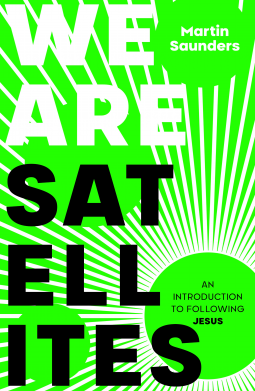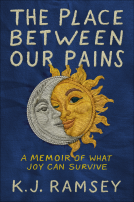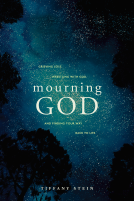
We Are Satellites
How to put God at the centre of your life
by Martin Saunders
This title was previously available on NetGalley and is now archived.
Send NetGalley books directly to your Kindle or Kindle app
1
To read on a Kindle or Kindle app, please add kindle@netgalley.com as an approved email address to receive files in your Amazon account. Click here for step-by-step instructions.
2
Also find your Kindle email address within your Amazon account, and enter it here.
Pub Date Oct 15 2020 | Archive Date Oct 14 2020
SPCK | SPCK Publishing
Talking about this book? Use #WeAreSatellites #NetGalley. More hashtag tips!
Description
Available Editions
| EDITION | Other Format |
| ISBN | 9780281084234 |
| PRICE | $14.99 (USD) |
| PAGES | 144 |
Links
Average rating from 4 members
Featured Reviews
 Rachael N, Reviewer
Rachael N, Reviewer
Martin writes as he speaks; with warmth, energy, excellent Dad-humour and an overwhelming love for Jesus. This book is full of all the above and whilst aimed at teenagers, it’s worth a read for grown ups too who sometimes forget why they became a Christian. This book is a reminder and a clarion call back to Jesus.
This a great book for both young people and youth workers. Great concept that God is at the centre and we are satellites orbiting him. The points Martin makes are both simple but also excellently executed. Give this book to a young person in your church and I have no doubt that it will challenge them but also spur them on to live Christ centered lives
 Educator 676205
Educator 676205
"If God is real then he made you, and if he made you then he has intentions for you. If God is real then you’re not here by accident, and instead there’s a reason and a purpose for your life...If the Creator of the entire universe is real and wants to know you, then once you’ve truly realized that, you can’t simply do nothing."
We Are Satellites is an introduction to the Christian faith designed for teenagers. It is written in a conversational style but is not patronising. As from the title, it is written with the vision that we are satellites "created to orbit and orientate our lives around the God who lies at the centre of it all," and like satellites, we upload, download, and occasionally experience interference!
The author writes warmly and presents the Christian faith as a great adventure. He writes in obvious opposition to the prevailing secular view of the universe - that there is a creator of all things and that each and every person is 'not random, not ordinary, but utterly unique and extraordinarily special.'
Even though the book is written for teenagers, no punches are pulled. The Christian faith is a revolution, and 'revolutions aren’t staffed by part-timers...Are you going to give God everything, or are you going to give him nothing? Because that halfway house option isn’t really worth your time." Yet none of this is written in a threatening or intimidatory manner - he reminds us that we are relentlessly pursued by God, "to bring you to life, and to recruit you to a world-transforming movement where you can help bring others to life too."
The author presents the Bible as having a single message, God is love. I might suggest its a bit more complicated than that, even for teenagers, but it's a good enough place to start as any. I think a bit more work could have been done on the person and message of Christ and arguments for his divinity. The author confesses the well-worn argument that Christ was mad, bad or God. I'm not sure if that argument is as useful in 2021 as it was for the author in his youth, and for those in previous decades.
However, I very much appreciated that the author presents the Christian life as a 'slow transformation' as opposed to an instantaneous change. I think this is crucially important when presenting the faith to the young. Not only do they not have as much time to reflect back upon, but it might be very easy for them to fall at an early hurdle and think that the faith is not for them or is simply untrue. Much emphasis in some circles on the moment of conversion does not help this, and the author is wise in presenting an alternative.
One of the most interesting points of the book was his emphasis on having more than one reason to believe in God. He compares this as having several ropes that pin down our 'tent of faith.' This has resonance not only for teens - who usually have a rather vague yet fervent faith - but also for many adults in the church also. He also presents the faith as offering a clear challenge to the prevailing worldview of the young that places them and their wishes and needs at the centre of their lives and indeed the centre of reality. Instead, he suggests that we look for the contentment that can only be found when looking beyond ourselves and our own needs.
The only part of the book that seemed out of place was a section on social justice, which used the example of racial injustice in the United States, offering a moving story of forgiveness from a gun-related death. This seemed a sudden an unusual shift in tone from a book that sounds and reads from a very English perspective, and our relationship with Christianity in a social and cultural context entirely different. This book was perhaps finished in the wake of the BLM movement in 2020, and so the perspective of the USA might have been large in the author's mind. As - I think - that American spellings are sometimes used, perhaps this was an attempt to broaden the book to a wider audience, but perhaps in a revision, more fitting examples could be used from our own context?
The author writes convincingly on prayer, the problem of suffering, the need to be part of a church, the Holy Spirit and evangelism. Indeed, the final section offers the salient reminder that in every conversation we have with others about the faith, the Trinity are active and present. "Ultimately, we don’t convince anyone to follow Jesus. God invites us into and chooses to use us as part of the process, but in the end he’s always the one who calls out, ‘Come, follow me." This a timely reminder for adults also.
As to who I would commend this book? It's not a post-Confirmation book, but rather a book to lead people towards that place. Perhaps for those who have a ministry to schools or to youth groups that are not explicitly church groups. This book may not last the test of time, but it reads as an enjoyable rewrite of Mere Christianity for young people in the 21st century.









